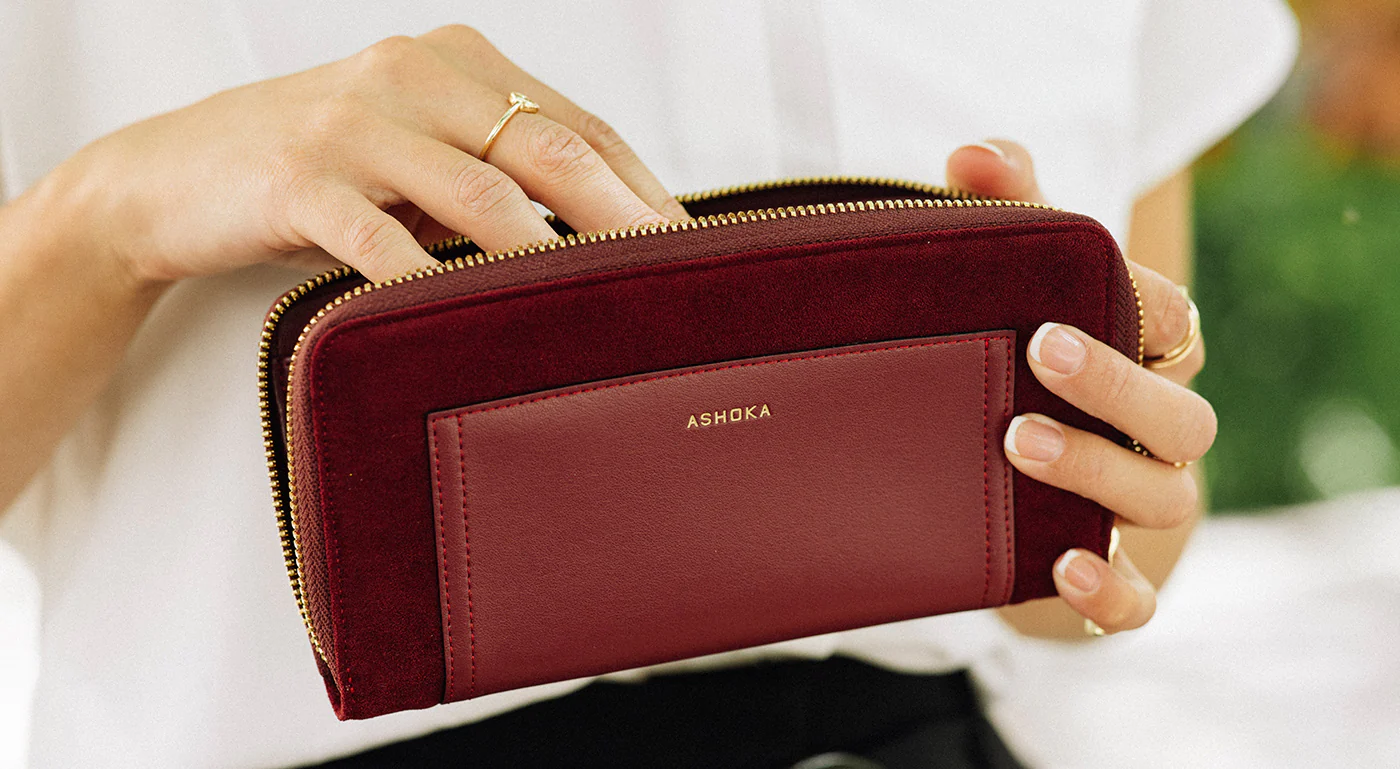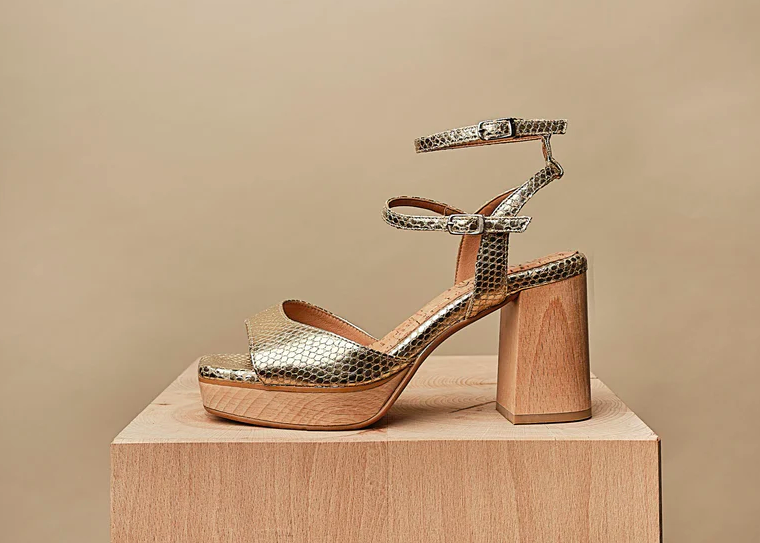The Next Pandemic is Looming - Can Vegan Fashion Prevent It?
Back in 2020, the COVID-19 pandemic sent shockwaves through the world as lockdowns broke out globally. None of us had experienced anything quite like it, and at that time, most believed we would never encounter such an event again. However, as scientists persistently warn about the likelihood of future large-scale pandemics, it is crucial that we delve into the origins of global disease outbreaks and consider how our actions can either contribute to or hinder their next occurrence. Surprisingly, the clues may be much closer to home than we realize, namely, in our own wardrobes.
A growing body of evidence suggests that the COVID-19 virus may have originated from a live-animal market. This has resulted in increasing calls to ban such markets, with these demands growing louder in the months and years that have passed since the pandemic began. Prominent figures, including the biodiversity chief of the United Nations, have joined this chorus of voices advocating for a ban.
Whether or not the COVID-19 pandemic indeed started in one of these markets, the practice of confining animals in such conditions – where they are kept in cramped cages stacked upon each other, with opportunities for bodily fluids to mix – provides an ideal environment for the breeding of pathogens. This could also explain why, 75 percent of all infective diseases affecting humans originate in other animals. But while some believe that these trades are only linked to food and medicine, fashion is also playing in this potential crisis.
Campaign groups have found that exotic animal skins - the kind used in high-end accessories like shoes, bags and belts from big-name fashion brands, often made from the skins of alligators, snakes, crocodiles, lizards and other exotic animals - come from farms with very similar conditions to those of live animal markets.
Yearling crocodiles packed into pen. Credit: PETA
Cramped surroundings, a lack of hygiene standards, and bodily fluids are a far cry from the glamorous, luxury image of these fashion items. Brands who have banned exotic animal skins from their collections include Mulberry, Victoria Beckham, Hugo Boss, Paul Smith, Chanel, and Burberry - and those still using them include the likes of Gucci, Prada, Fendi, Hermés and Louis Vuitton.
Campaigners are calling on designers to drop these materials, citing the pandemic risk: “the exotic-skins industry causes animals tremendous suffering – and now, we know it also causes deadly diseases,” says PETA Vice President of UK Programmes and Operations Elisa Allen. “PETA is calling on brands to shun this toxic material or risk the bad look of helping to bring about the next deadly pandemic.”
Another material that has raised pandemic concerns is fur. An alarming number of countries where fur farming is still present saw outbreaks of COVID-19 on fur farms: Spain, France, Finland, Denmark, Sweden, the US, the Netherlands, and more. In Denmark, a new mutation of the virus developed on fur farms, sending shockwaves through the country and the industry. Entire nations rushed to close down the entire industry for the duration of the pandemic, and the Netherlands brought its planned 2024 closure of all fur farms forward by four years, dismantling the industry in 2020.
Health experts continue to warn that fur farming is an ongoing pandemic risk. In Denmark, the industry has opened back up - but farmers are unwilling to return to the trade. The pandemic risk has also prompted entire nations to take action: in 2021, as parts of the world were still locked down, Israel became the first country in the world to ban the sales and import of fur. Campaigns exist today to call on both the UK and the EU to follow their lead.
Solutions for Change
Our treatment of other animals is proving dangerous - not only to the animals themselves but also to us. In response, vegan fashion is addressing concerns that the emerging movement was facing pre-pandemic, such as environmental sustainability, to offer alternatives that may also safeguard human health by making animal-derived fabrics obsolete.
One of these champions is French faux-fur artisans ECOPEL and their plant-based material KOBA, which moves away from the ‘faux fur is plastic’ narrative by introducing a corn-derived textile which emits significantly fewer greenhouse gases and uses less resources than conventionally made faux fur. ECOPEL Communications Manager Arnaud Brunois is clear when it comes to the benefits of KOBA, and faux fur, over the animal-derived kind: “It’s false to imagine that animal fur can ever be sustainable in any shape or form," he told Bioplastic News. "A fur coat is loaded with petrochemicals – this is why it lasts, not because it’s natural. In Finland, the factory farming of foxes for the fur industry is responsible for 10 percent of ammonia emissions, a contributor to air pollution with a documented effect on human health.”
Plastic-free, non-animal premium leather alternative, Reishi. Credit: MycoWorks
Exotic skins are already seen as obsolete by many - lacking even the excuse of the warming properties of materials such as wool and fur, these skins are largely viewed as a status symbol - often an ostentatious one, bordering on tacky. But for those who unashamedly crave the croc or snake look, vegan fashion has a lot to offer.
Developments such as leather made from cactus, apple or mango have enabled designers to experiment with sustainable innovation - and many of these textiles can be embossed with prints to mimic snake, crocodile skin, or other finishes inspired by exotic animals. And the brands whose remit exotic skins may be – or may have been in the past – are now finding themselves experimenting with vegan materials, such as Hermes working with mushroom leather, or Karl Lagerfeld teaming up with supermodel Amber Valletta to work on a bag in cactus leather.
It may be argued that it is sad that it had to take a public-health crisis for fashion to wake up and take notice of the harm caused by animal skins – but on the other hand, any positive development towards vegan fashion saves the lives of animals. Only this time, it might be saving our lives, too.
Take Action:
A new bill, the ‘Mink: Vectors for Infection Risk in the United States Act’, known as the Mink VIRUS Act (H.R. 3783), has been introduced in the United States. The legislation aims to protect public health and reduce the risk of zoonotic disease transmission by prohibiting mink farming in the country. Under the plans, a new federal grant program will help phase out current farms within a one-year period by offering a reimbursement to farmers.
Join Species Unite in urging Congress to pass H.R.3783, the Mink: Vectors for Infection Risk in the United States Act (Mink VIRUS Act). Add your name to our petition here.
Written by Sascha Camilli
Sascha Camill is a writer, speaker and vegan fashion expert. She founded the world's first digital vegan fashion magazine Vilda, and is the author of Vegan Style: Your Plant-Based Guide to Beauty, Fashion, Home & Travel. Her podcast, Catwalk Rebel, is out now.
Want to write for Species Unite? We are looking for well-written stories focusing on content that informs, inspires, and engages our audience with topics surrounding animal rights.
We Have A Favor To Ask…
Species Unite amplifies well-researched solutions to some of the most abusive animal industries operating today.
At this crucial moment, with worldwide momentum for change building, it’s vital we share these animal-free solutions with the world - and we need your help.
We’re a nonprofit, and so to keep sharing these solutions, we’re relying on you - with your support, we can continue our essential work in growing a powerful community of animal advocates this year.






The all-electric BMW 5 Series Touring uses innovative, animal-free materials that are as robust as leather and more sustainable.